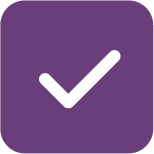Main Menu
Background
Patient reported outcomes (PROs) are reports from patients about their own health, quality of life, or functional status associated with the healthcare or treatment they have received. Unfortunately, there is a limited use of PROs in acute stroke trials where patients have recently suffered a stroke. These types of stroke trials typically use only tools such as the Modified Rankin Scale (mRS), which only measures functional disability, and not other important aspects such as cognitive function, mood, mental health, anxiety, and fatigue, amongst others. Additionally, current PROs collection and assessment in stroke trials can be slow and difficult to collect, which has only been amplified by the COVID-19 pandemic.
Electronic clinical outcome assessment (eCOA) systems offer a simpler and faster method of assessing patients and collecting PROs in stroke trials. There is an abundance of literature that suggests that use of eCOA systems in acute stroke trials can lead to increased diversity in patient recruitment, increased patient compliance, better data quality, improved efficiency, and reduced missing data. This project addresses the gaps in this area by first understanding patient’s experiences in previous stroke trials, their priorities, their preferences for different media for electronic outcome assessment, and barriers to the uptake of these systems. This knowledge will inform the design and development of an electronic platform, called strokePRO, which aims to shift how clinical outcomes are collected and assessed in acute stroke trials.
The strokePRO tool will improve the quality of data in stroke research by being a more simple and reliable way of collecting and analyzing PROs. Furthermore, strokePRO will boost the recruitment and retention of patients in acute stroke trials by eliminating barriers that are faced by equity-deserving groups (e.g. transportation to visits and any other indirect costs) and by reducing trial costs and burden for stroke investigators and neurologists.
This opportunity is looking for both patient research partners and for study participants.
For Patient Partners
Roles and Responsibilities:
We hope to invite up to 5 patient partners with lived experience of stroke to directly join our study steering committee. In this committee, patient partners would share essential insights and feedback on study conduct, participant recruitment, design and implementation of the strokePRO tool, and presentation of the strokePRO system to medical communities/stroke trialists. Our hope is to have a patient advisory group that is representative of the diverse communities and populations that make up Canada.
Time Commitment:
The project is expected to last 3 years, with funding starting in January 2024, however we ask for a commitment of at least 1 year with the opportunity to continue on the study after each year is completed. We expect to host hour-long meetings each quarter for the steering committee, and there may be additional meetings where we ask for patient partner feedback.
Compensation/Reimbursement:
Compensation at a rate of $25/hour spent on the project will be offered to patient partners.
This is an online opportunity (meetings will be held online via Zoom) so there are no expenses anticipated for travel, parking, etc.
For Patient Participants
We are recruiting 60 ischemic stroke patients who have taken part in previous stroke trials to participate with us in an online focus group lasting approximately 2 hours. In these focus groups, we will ask our participants about their thoughts on how they are being assessed after a stroke, their experiences with participating in previous stroke trials, and their preferences for being assessed in stroke trials. These focus groups will be conducted using semi-structured interview guides with up to 5 patients through a digital format (i.e. Zoom video conferencing). Ten of the 60 participants will be asked to conduct further usability testing with the strokePRO platform, which would involve independent evaluation of the strokePRO system for to gauge usability and acceptability of the tool.
Time Commitment:
Participation would involve a 2-hour online focus group and potentially the opportunity to take part in further usability testing for the strokePRO system.
Token of Appreciation:
Patients will be compensated with $50 for participating in our focus group, and any patients that participate in further usability testing will be compensated an additional $25.
Let us know how you want to stay connected


 News + Events
News + Events

 Patient Partner Research Opportunities
Patient Partner Research Opportunities

 I agree to receive occasional emails from AbSPORU.
I agree to receive occasional emails from AbSPORU.University of Calgary Foothills Campus
3330 Hospital Dr NW
Calgary, AB T2N 4N1
College Plaza
1702, 8215 112 St NW
Edmonton, AB T6G 2C8
The Alberta SPOR SUPPORT Unit operates on and acknowledges the lands that are the traditional and ancestral territory of many peoples, presently subject to Treaties 6, 7, and 8. Namely: the Blackfoot Confederacy – Kainai, Piikani, and Siksika – the Cree, Dene, Saulteaux, Nakota Sioux, Stoney Nakoda, and the Tsuu T’ina Nation and the Métis People of Alberta. This includes the Métis Settlements and the Métis Nation of Alberta. We acknowledge the many First Nations, Métis and Inuit who have lived in and cared for these lands for generations. We make this acknowledgment as a reaffirmation of our shared commitment towards reconciliation, and as part of AbSPORU’s mandate towards fostering health system transformation.
© 2024 AbSPORU